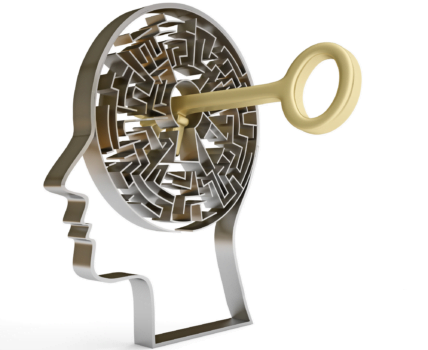Introduction
Psychological defense mechanisms are coping techniques that shield us from unconsciously experiencing and internalizing our emotionally painful thoughts and feelings. They help protect us from feeling overwhelmed or paralyzed by anxiety, depression, shame, or other difficult emotions. While we all use defense mechanisms at times to manage uncomfortable emotions in healthy ways, some people rely too heavily on them as a way of avoiding emotional challenges altogether. When this happens, it can lead to problems in personal relationships and functioning in work and school contexts.
Fortunately, therapy can be very helpful for addressing problematic defense mechanisms and learning healthier coping strategies. In fact, one of the main goals of therapy is to assist clients in identifying their maladaptive patterns so that they can begin to make more conscious choices about how they cope with stressors.
What are defense mechanisms?
Defense mechanisms are a natural and often unconscious way to protect ourselves from anxiety, stress, hurt, or pain. We all have defense mechanisms. Some serve us well, while others can cause problems in our lives. It is important for a therapist to help clients identify their defense mechanisms so that they can address them in the course of therapy.
Some common defense mechanisms include:
1. Repression- The conscious blocking of thoughts, feelings, or memories.
2. Rationalization- Making excuses for behaviors or thoughts that may not be in our best interest.
3. Isolation- Avoiding social interaction because it makes us feel uncomfortable or stressed.
4. Disassociation- Putting distance between ourselves and unpleasant memories or situations to avoid feeling them fully.
5. Cathexis- Attaching strong emotions to objects or people in order to protect ourselves from feeling hurt or overwhelmed emotions.
There are different types of defense mechanisms:
– Repression is when we push something painful out of our conscious awareness.
– Denial is when we refuse to accept that something bad has happened or is happening.
– Projection is when we place the blame for our own feelings or actions onto someone else.
– Displacement occurs when we take out our frustration on someone who isn’t the source of the problem.
The different types of defense mechanisms
Psychologists have identified different types of defense mechanisms, which vary in terms of their psychodynamic implications. Some defense mechanisms are more primitive, while others are considered more mature. The following list comprises some of the most commonly studied defense mechanisms:
1. Denial: Refusing to accept reality or the truth about a situation.
2. Repression: Pushing unpleasant thoughts and feelings out of consciousness.
3. Projection: Attributing one’s own unpleasant thoughts or feelings to someone else.
4. Displacement: Directing negative emotions or impulses onto a less threatening object or person.
5. Regression: Reverting to a more childlike or immature way of coping in response to stress.
6. Internationalization: Distancing oneself from emotions by focusing on the intellectual aspects of a situation.
7. Rationalization: Justifying one’s actions or feelings with logical explanations that may not be accurate.
8. Sublimation: Channeling negative emotions or impulses into more socially acceptable behaviors or activities.
9. Reaction formation: Behaving in the opposite way to one’s true feelings in order to avoid acknowledging or dealing with them.
10. Compensation: Attempting to make up for perceived weaknesses or failures by emphasizing or exaggerating one’s strengths or successes.
It is important to note that the use of defense mechanisms is a normal part of human psychology, and most people use some form of defense mechanism at some point in their lives. However, excessive reliance on defense mechanisms can be problematic, as it can prevent individuals from effectively dealing with their emotions and problems in a healthy way.
Why it is important for a therapist to help clients identify and address them in the course of therapy
Defense mechanisms are unconscious psychological strategies that we use to protect ourselves from anxiety, stress, hurt, and other perceived threats. They can be helpful in the short term but can become problematic if they are used excessively or in unhealthy ways.
Therapists can help clients to identify their defense mechanisms and work through any underlying issues that may be causing them to rely on these coping strategies too heavily.
Clients can also be encouraged to explore alternative coping mechanisms, such as seeking support from friends or family, talking about their feelings, or using exercise to focus on positive thoughts. If the defense mechanism is stopping the client from accessing certain parts of their life, they may also be referred for therapy which could help them to grieve and process their emotions.
Conclusion
Defense mechanisms are an important part of psychology that help individuals to cope with difficult emotions, thoughts, and situations. They can be helpful in the short-term but can also cause problems if they are overused or used in unhealthy ways.
Therapists can help clients identify and address their defense mechanisms in order to improve their mental and emotional well-being. This can involve helping clients become aware of their defense mechanisms, examining the underlying emotions and beliefs that drive them, and finding healthier ways to cope with difficult emotions and situations.
It is important for therapists to approach this work in a non-judgmental and supportive way and to help clients develop a greater understanding of their own emotions and how to effectively manage them. By doing this, therapists can help clients develop greater emotional intelligence and resilience and improve their overall well-being.
If you want to learn more about defense mechanisms, you can check out the given link: https://instituteofclinicalhypnosis.com/?s=defense+mechanism








